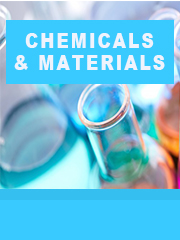Report overview
Most Melt Blown Nonwoven Fabrics are made of polypropylene fibers. It is indispensable for products used to create clean environments, such as filters, masks, Hygiene, and wiping cloths.
This report aims to provide a comprehensive presentation of the global market for Polypropylene Melt Blown Nonwoven Fabrics, with both quantitative and qualitative analysis, to help readers develop business/growth strategies, assess the market competitive situation, analyze their position in the current marketplace, and make informed business decisions regarding Polypropylene Melt Blown Nonwoven Fabrics. This report contains market size and forecasts of Polypropylene Melt Blown Nonwoven Fabrics in global, including the following market information:
Global Polypropylene Melt Blown Nonwoven Fabrics Market Revenue, 2018-2023, 2024-2030, ($ millions)
Global Polypropylene Melt Blown Nonwoven Fabrics Market Sales, 2018-2023, 2024-2030, (MT)
Global top five Polypropylene Melt Blown Nonwoven Fabrics companies in 2022 (%)
The global Polypropylene Melt Blown Nonwoven Fabrics market was valued at US$ 1111.3 million in 2022 and is projected to reach US$ 1294.2 million by 2029, at a CAGR of 2.2% during the forecast period. The influence of COVID-19 and the Russia-Ukraine War were considered while estimating market sizes.
The major players have Berry Global, Mogul, Kimberly-Clark, Monadnock Non-Woven, Ahlstrom-Munksj?, Sinopec, etc. The Top 3 players in Global Meltblown PP Nonwoven Fabric market sales was about 15%, while the share of the top 5 players was over 20%. The market is fragmented. In addition to policy impact, downstream demand is the key factor affecting the market.
For the consumption of Meltblown PP Nonwoven Fabric, the global consumption distribution is mainly focused in the areas of Asia-Pacific, which is take up about 48% of the market share, followed by North America, which take up about 25% of the market share.
Protective Mask accounted for the largest market with about 24% of the global consumption for Meltblown PP Nonwoven Fabric. With about 20% share in the Meltblown PP Nonwoven Fabric market, Hygiene was the second application market. Besides, Net Weight 25-50 (g/m2) is the largest type in this market.
We surveyed the Polypropylene Melt Blown Nonwoven Fabrics manufacturers, suppliers, distributors and industry experts on this industry, involving the sales, revenue, demand, price change, product type, recent development and plan, industry trends, drivers, challenges, obstacles, and potential risks.
Total Market by Segment:
Global Polypropylene Melt Blown Nonwoven Fabrics Market, by Type, 2018-2023, 2024-2030 ($ Millions) & (MT)
Global Polypropylene Melt Blown Nonwoven Fabrics Market Segment Percentages, by Type, 2022 (%)
Fiber Diameter, <1um
Fiber Diameter, 1-5um
Fiber Diameter, >5um
Global Polypropylene Melt Blown Nonwoven Fabrics Market, by Application, 2018-2023, 2024-2030 ($ Millions) & (MT)
Global Polypropylene Melt Blown Nonwoven Fabrics Market Segment Percentages, by Application, 2022 (%)
Face Masks
Hair Caps
Surgical Gown
Protective Clothes
Wiping Cloths
Home Textile
Industrial Filter
Others
Global Polypropylene Melt Blown Nonwoven Fabrics Market, By Region and Country, 2018-2023, 2024-2030 ($ Millions) & (MT)
Global Polypropylene Melt Blown Nonwoven Fabrics Market Segment Percentages, By Region and Country, 2022 (%)
North America
US
Canada
Mexico
Europe
Germany
France
U.K.
Italy
Russia
Nordic Countries
Benelux
Rest of Europe
Asia
China
Japan
South Korea
Southeast Asia
India
Rest of Asia
South America
Brazil
Argentina
Rest of South America
Middle East & Africa
Turkey
Israel
Saudi Arabia
UAE
Rest of Middle East & Africa
Competitor Analysis
The report also provides analysis of leading market participants including:
Key companies Polypropylene Melt Blown Nonwoven Fabrics revenues in global market, 2018-2023 (Estimated), ($ millions)
Key companies Polypropylene Melt Blown Nonwoven Fabrics revenues share in global market, 2022 (%)
Key companies Polypropylene Melt Blown Nonwoven Fabrics sales in global market, 2018-2023 (Estimated), (MT)
Key companies Polypropylene Melt Blown Nonwoven Fabrics sales share in global market, 2022 (%)
Further, the report presents profiles of competitors in the market, key players include:
Toray
PFNonwovens
Berry Global
Freudenberg
Ahlstrom-Munksjo
Don & Low
Kimberly-Clark
Mogul
Mitsui Chemicals
Monadnock Non-Woven
CHTC Jiahua
Tianjin Teda
Shandong JOFO Nonwoven Co
Xinlong Group
Outline of Major Chapters:
Chapter 1: Introduces the definition of Polypropylene Melt Blown Nonwoven Fabrics, market overview.
Chapter 2: Global Polypropylene Melt Blown Nonwoven Fabrics market size in revenue and volume.
Chapter 3: Detailed analysis of Polypropylene Melt Blown Nonwoven Fabrics manufacturers competitive landscape, price, sales and revenue market share, latest development plan, merger, and acquisition information, etc.
Chapter 4: Provides the analysis of various market segments by type, covering the market size and development potential of each market segment, to help readers find the blue ocean market in different market segments.
Chapter 5: Provides the analysis of various market segments by application, covering the market size and development potential of each market segment, to help readers find the blue ocean market in different downstream markets.
Chapter 6: Sales of Polypropylene Melt Blown Nonwoven Fabrics in regional level and country level. It provides a quantitative analysis of the market size and development potential of each region and its main countries and introduces the market development, future development prospects, market space of each country in the world.
Chapter 7: Provides profiles of key players, introducing the basic situation of the main companies in the market in detail, including product sales, revenue, price, gross margin, product introduction, recent development, etc.
Chapter 8: Global Polypropylene Melt Blown Nonwoven Fabrics capacity by region & country.
Chapter 9: Introduces the market dynamics, latest developments of the market, the driving factors and restrictive factors of the market, the challenges and risks faced by manufacturers in the industry, and the analysis of relevant policies in the industry.
Chapter 10: Analysis of industrial chain, including the upstream and downstream of the industry.
Chapter 11: The main points and conclusions of the report.
